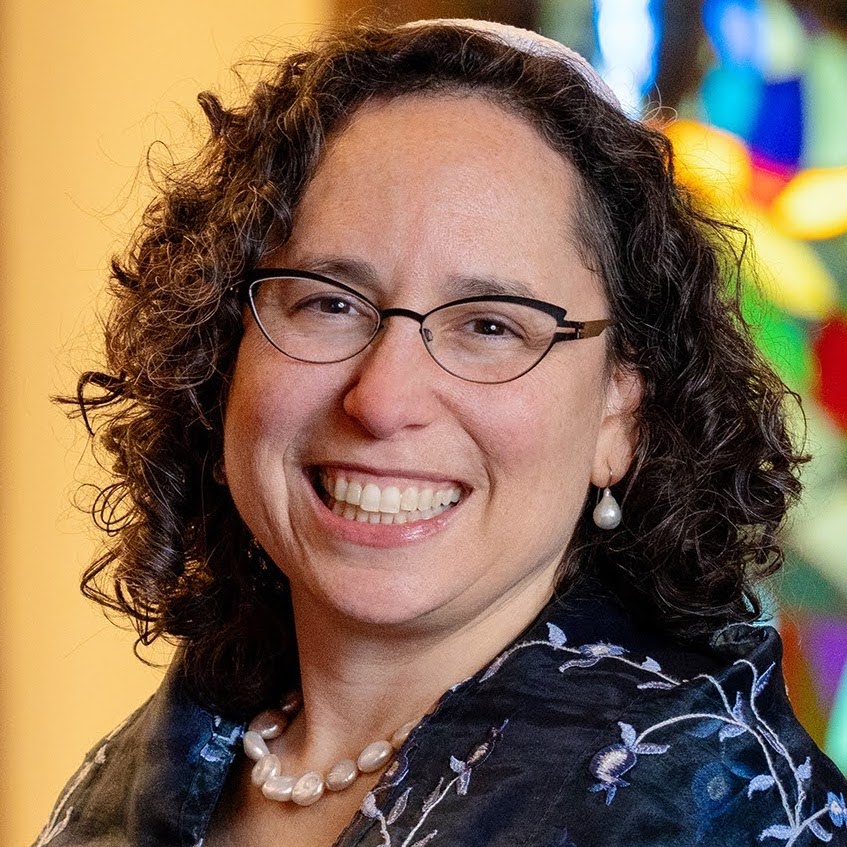Sermon: Ha’azinu
Rabbi Julie’s sermon for Parashar Ha’azinu, “Looks Who Thinks He’s So Humble – Moses”
We are nearing the end of Moses’ life, and I can’t help but think, if I were to be asked to officiate at Moses’ funeral, what would I say in his eulogy? To be certain, his accomplishments are significant. He led the entire Israelite people out of Egypt, a transformative event that is not only celebrated at Passover seder every year but is mentioned in every single prayer service. He received the Torah at Mount Sinai, a book so sacred it is carefully transcribed, letter by letter, and lovingly carried and kissed and adorned – the very foundation of Judaism for thousands of years, not to mention the foundation of other world religions practiced by over 4 billion people. And that’s not to mention his one-of-a-kind relationship with God, which allowed him to experience God’s presence with such intensity that his face glowed.
But I think what I would emphasize most, is a quality I admire greatly in any human being, humility. In the Mussar tradition, anavah, or humility is understood as the midpoint between arrogance and self-deprecation. A person with humility neither overestimates nor underestimates their capabilities. True humility is a balance. The great Chasidic master, Rabbi Simcha Bunim of Peshischa would always keep a piece of paper in each pocket. When he was feeling too sure of himself, he would take out the piece of paper that read ‘I am but dust and ashes’ and when he doubted himself, he would take out the piece of paper that read ‘for my sake the whole world was created.’ Maybe in Moses’ case he would oscillate between, ‘I was raised in the palace by Pharoah’ and ‘I am but an orphaned child’ or ‘God has singled me out as a prophet’ and ‘I can’t even speak clearly.’
Moses was so humble, he was said to be more humble than any human being on earth.[1] This quality of humility was manifest in the first moment God tapped him for leadership. Instead of feeling proud or confident or entitled, when God asked him to go to Pharoah to free his people, Moses said, ‘Who am I that I should go to Pharoah?’[2] Moses gave several reasons why he wasn’t qualified for this role, until God finally reassured him that his brother Aaron would be by his side. Another reason Moses was humble was that he shared his leadership with others, not only his brother Aaron and his sister Miriam, but with the many tribal leaders who would help arbitrate disputes.
Most significantly, Moses was very deferential to God. While we might take this for granted, that Moses was an intercessor between the people and God, we shouldn’t forget that Moses was raised with Pharoah who modeled a very different type of self-image and leadership. When Moses was asked a question, like what a person should do if they were unable to offer the Passover sacrifice at the usual time because they were in a state of impurity, rather than giving his own answer he said, hold on, let me go ask God what the answer should be.[3]
In the words of Mussar teacher, Rabbi Max Weiss, “Moses stands at the center of the Torah. He, more than any other person, connects heaven and earth.” But his greatness is in his ability to mediate between God and the people, a role he can only fulfill by “standing in the midst of the people, working among them as a connector.” Rabbi Weiss suggests that Moses’ “humility is based on his recognition that he lives his life among and with his people, not at the center and not above them.”
As we enter this New Year in earnest, I hope we can learn from Moses’ example. When we are called to tasks we are hesitant to accept, may we find the courage and the confidence to forge ahead. And when we are feeling confident in our abilities and accomplishments, may we remember that our true task, in the words of the prophet Micah, are to “do justice, love goodness, and walk humbly with our God.[4]”
Shabbat Shalom.
[1] Numbers 12:3.
[2] Exodus 3:12.
[3] Numbers 9:4-8.
[4] Micah 6:8
Other Sermons and Talks from the Bimah
See the blog category: Sermons & Talks
Video Archive
The archive of all Shomrei videos is available on our YouTube Channel at shomrei.org/video

